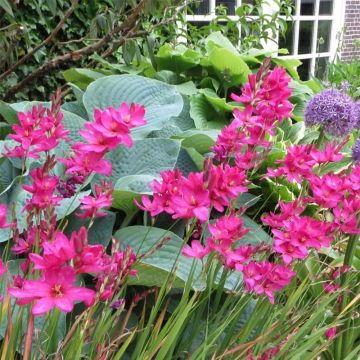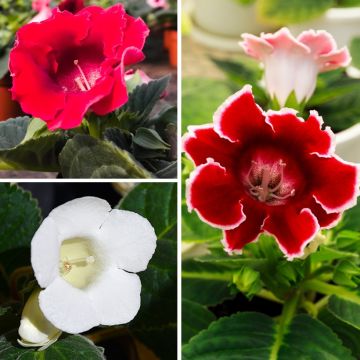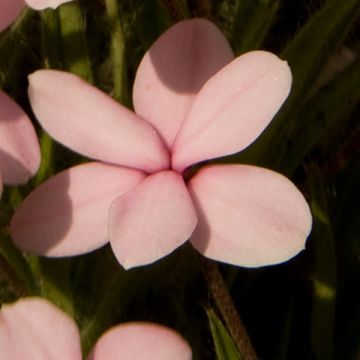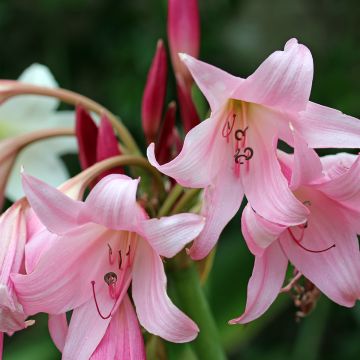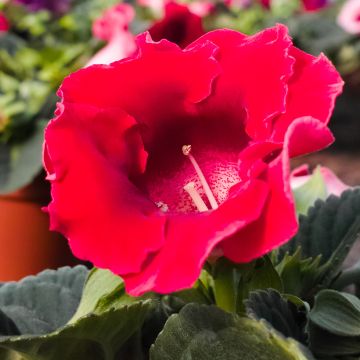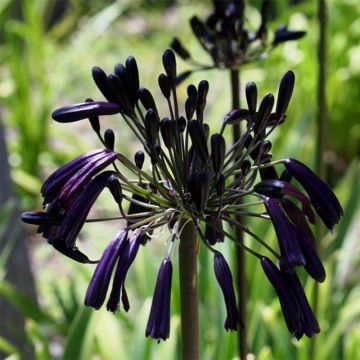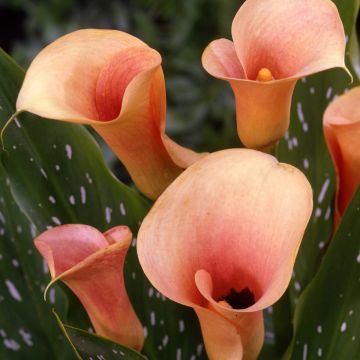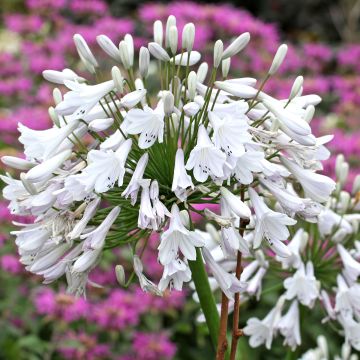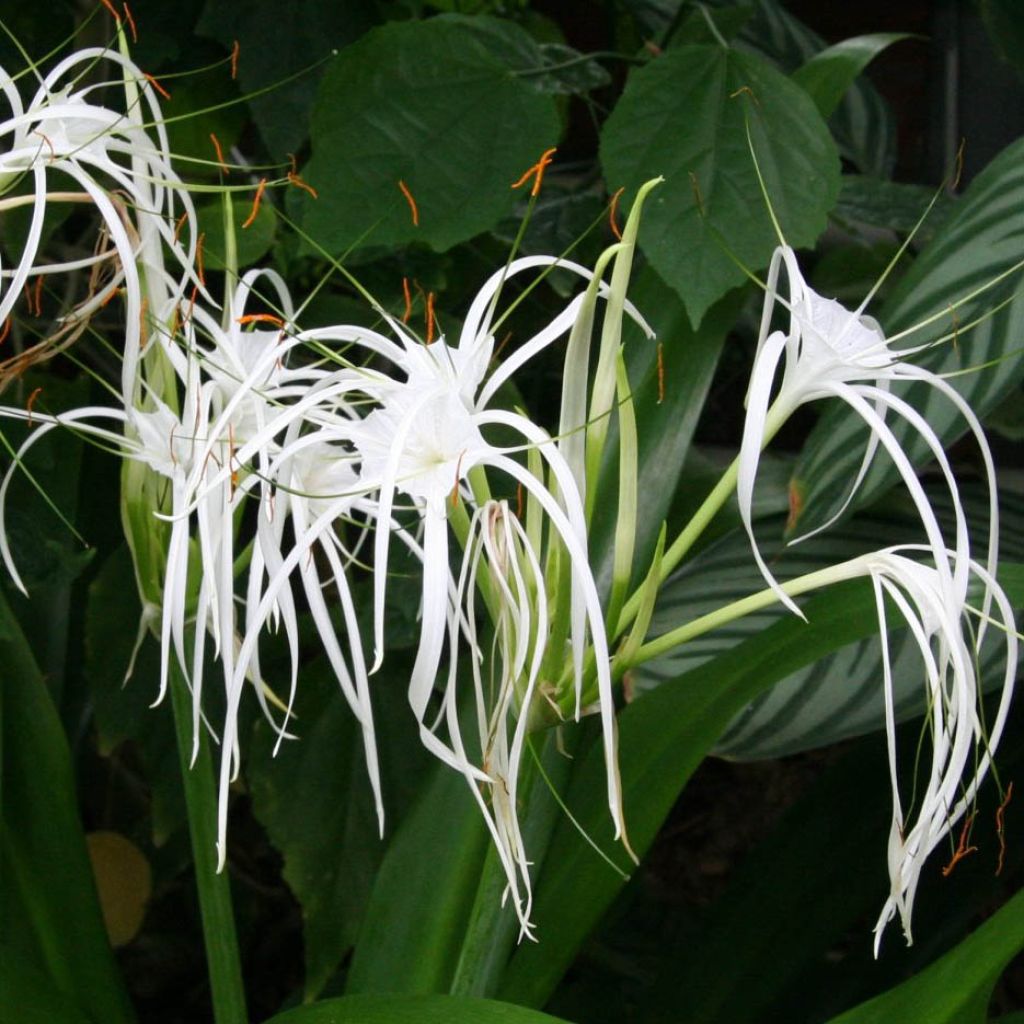

Hymenocallis longipetala - Ismene blanche
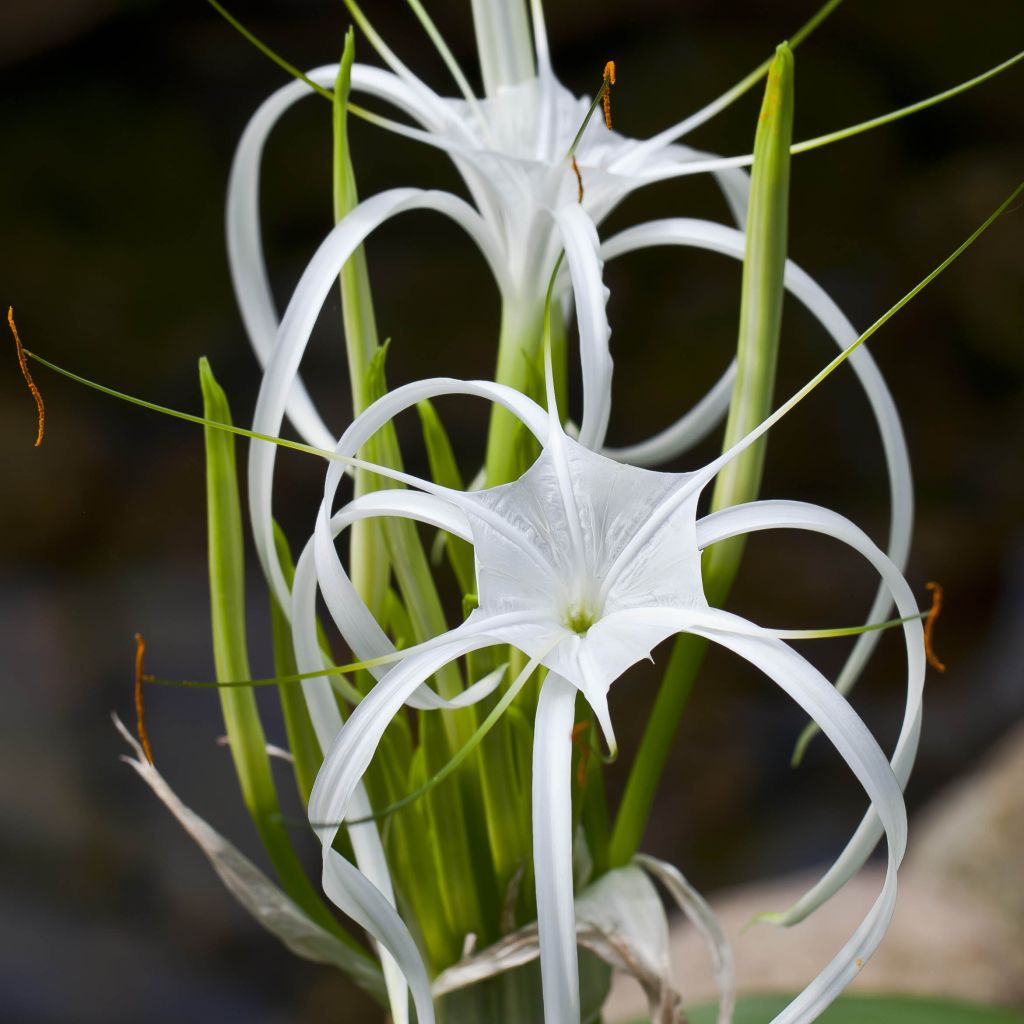

Hymenocallis longipetala - Ismene blanche
Hymenocallis longipetala - Spider Lily
Hymenocallis longipetala
Spider Lily, Basket Flower
Very beautiful and large bulbs, I look forward to seeing them bloom this summer after successfully trying hymenocallis festalis and sulfur queen last year.
Fred78, 25/02/2025
Special offer!
Receive a €20 voucher for any order over €90 (excluding delivery costs, credit notes, and plastic-free options)!
1- Add your favorite plants to your cart.
2- Once you have reached €90, confirm your order (you can even choose the delivery date!).
3- As soon as your order is shipped, you will receive an email containing your voucher code, valid for 3 months (90 days).
Your voucher is unique and can only be used once, for any order with a minimum value of €20, excluding delivery costs.
Can be combined with other current offers, non-divisible and non-refundable.
Home or relay delivery (depending on size and destination)
Schedule delivery date,
and select date in basket
This plant carries a 6 months recovery warranty
More information
We guarantee the quality of our plants for a full growing cycle, and will replace at our expense any plant that fails to recover under normal climatic and planting conditions.
Would this plant suit my garden?
Set up your Plantfit profile →
Description
Hymenocallis longipetala, also known as the Spider Lily, Peruvian Daffodil or Sea Daffodil, is a bulb with white, intricately designed and fragrant flowers of surreal beauty.
The plant kingdom is abundant with plants that even the most fertile imagination could not conceive. There are varieties with both supernatural and extravagant silhouettes. Hymenocallis longipetala originates from rocky areas in Central and South America. It is also found in the southern parts of North America. It belongs to the large Amaryllidaceae family. The leaves have a rounded apex and a tapering base and are and arranged in rosettes. Each plant produces 2 to 3 flower stalks. The medium green leaves are shiny and ribbon-like. They form large clumps from which the stalks emerge and can reach a height of 90 cm (35in). From March to June, these stalks bear 2 to 5 flowers with an average diameter of 12 cm (5in). The flowers have long petals resembling filaments and are slightly curved backwards. The perianth takes the form of a calyx that carries the anthers, which are gathered at the front and in the middle of the flower.
Hymenocallis longipetala prefers light, relatively poor soils without limestone. It is sensitive to both drought and excessive moisture and thrives in full sunlight. It cannot tolerate frost: plant the bulbs once the last frost has passed or, better yet, when the soil has warmed up to 15 cm (6in) deep. In autumn, dig up the bulbs to store them indoors. With its fragrant flowers, it is stunning on its own in a vase. If you want to grow it as part of a flower bed, pair it with the sulphur yellow Ismene festalis sulphur queen for a combination of captivating beauties!
Report an error about the product description
Hymenocallis longipetala - Spider Lily in pictures
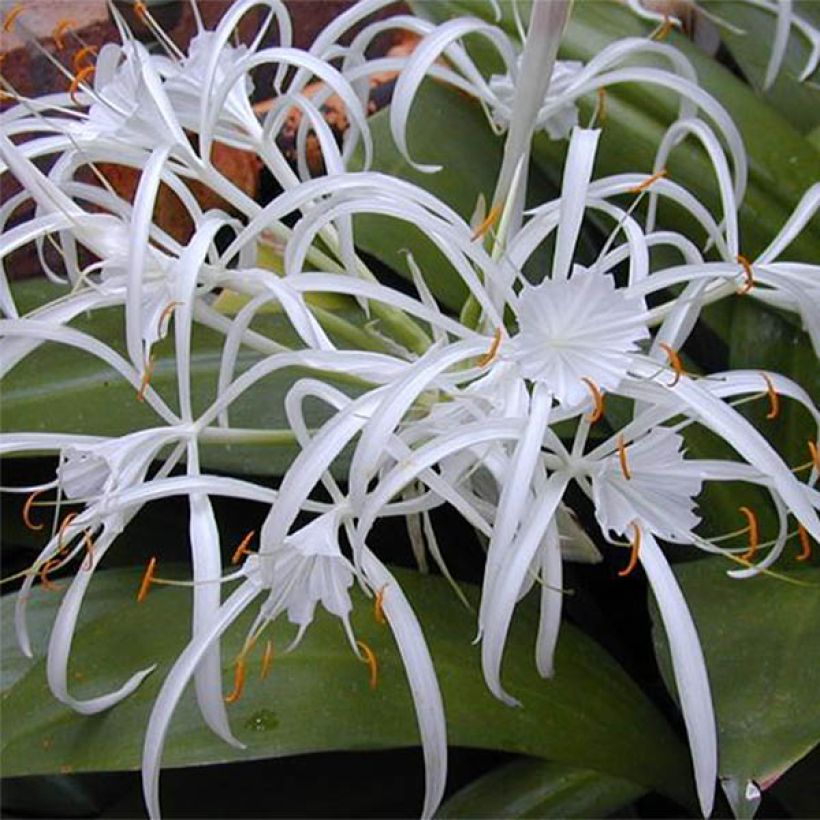

Plant habit
Flowering
Foliage
Botanical data
Hymenocallis
longipetala
Amaryllidaceae
Spider Lily, Basket Flower
Central America
Planting and care
Plant your Ismene bulbs after the last frost, in a semi-sunny location, 10 cm (4in) deep and 10 cm (4in) apart. The soil should be deeply worked and enriched with compost. Ismenes are sensitive to frost. In a coastal Mediterranean or oceanic climate, you can leave the bulbs in the ground, taking care to mulch them. In colder regions, the bulbs should be dug up in autumn before the first frost and stored in a cool, dry place. You can also grow them in pots (1 bulb per 15cm (6in) pot, with the top of the bulb just above the soil surface) in good compost that you regularly enrich with fertiliser, then take them outside at the end of spring and protect them from frost in winter.
Planting period
Intended location
Care
-
, onOrder confirmed
Reply from on Promesse de fleurs
Similar products
Haven't found what you were looking for?
Hardiness is the lowest winter temperature a plant can endure without suffering serious damage or even dying. However, hardiness is affected by location (a sheltered area, such as a patio), protection (winter cover) and soil type (hardiness is improved by well-drained soil).

Photo Sharing Terms & Conditions
In order to encourage gardeners to interact and share their experiences, Promesse de fleurs offers various media enabling content to be uploaded onto its Site - in particular via the ‘Photo sharing’ module.
The User agrees to refrain from:
- Posting any content that is illegal, prejudicial, insulting, racist, inciteful to hatred, revisionist, contrary to public decency, that infringes on privacy or on the privacy rights of third parties, in particular the publicity rights of persons and goods, intellectual property rights, or the right to privacy.
- Submitting content on behalf of a third party;
- Impersonate the identity of a third party and/or publish any personal information about a third party;
In general, the User undertakes to refrain from any unethical behaviour.
All Content (in particular text, comments, files, images, photos, videos, creative works, etc.), which may be subject to property or intellectual property rights, image or other private rights, shall remain the property of the User, subject to the limited rights granted by the terms of the licence granted by Promesse de fleurs as stated below. Users are at liberty to publish or not to publish such Content on the Site, notably via the ‘Photo Sharing’ facility, and accept that this Content shall be made public and freely accessible, notably on the Internet.
Users further acknowledge, undertake to have ,and guarantee that they hold all necessary rights and permissions to publish such material on the Site, in particular with regard to the legislation in force pertaining to any privacy, property, intellectual property, image, or contractual rights, or rights of any other nature. By publishing such Content on the Site, Users acknowledge accepting full liability as publishers of the Content within the meaning of the law, and grant Promesse de fleurs, free of charge, an inclusive, worldwide licence for the said Content for the entire duration of its publication, including all reproduction, representation, up/downloading, displaying, performing, transmission, and storage rights.
Users also grant permission for their name to be linked to the Content and accept that this link may not always be made available.
By engaging in posting material, Users consent to their Content becoming automatically accessible on the Internet, in particular on other sites and/or blogs and/or web pages of the Promesse de fleurs site, including in particular social pages and the Promesse de fleurs catalogue.
Users may secure the removal of entrusted content free of charge by issuing a simple request via our contact form.
The flowering period indicated on our website applies to countries and regions located in USDA zone 8 (France, the United Kingdom, Ireland, the Netherlands, etc.)
It will vary according to where you live:
- In zones 9 to 10 (Italy, Spain, Greece, etc.), flowering will occur about 2 to 4 weeks earlier.
- In zones 6 to 7 (Germany, Poland, Slovenia, and lower mountainous regions), flowering will be delayed by 2 to 3 weeks.
- In zone 5 (Central Europe, Scandinavia), blooming will be delayed by 3 to 5 weeks.
In temperate climates, pruning of spring-flowering shrubs (forsythia, spireas, etc.) should be done just after flowering.
Pruning of summer-flowering shrubs (Indian Lilac, Perovskia, etc.) can be done in winter or spring.
In cold regions as well as with frost-sensitive plants, avoid pruning too early when severe frosts may still occur.
The planting period indicated on our website applies to countries and regions located in USDA zone 8 (France, United Kingdom, Ireland, Netherlands).
It will vary according to where you live:
- In Mediterranean zones (Marseille, Madrid, Milan, etc.), autumn and winter are the best planting periods.
- In continental zones (Strasbourg, Munich, Vienna, etc.), delay planting by 2 to 3 weeks in spring and bring it forward by 2 to 4 weeks in autumn.
- In mountainous regions (the Alps, Pyrenees, Carpathians, etc.), it is best to plant in late spring (May-June) or late summer (August-September).
The harvesting period indicated on our website applies to countries and regions in USDA zone 8 (France, England, Ireland, the Netherlands).
In colder areas (Scandinavia, Poland, Austria...) fruit and vegetable harvests are likely to be delayed by 3-4 weeks.
In warmer areas (Italy, Spain, Greece, etc.), harvesting will probably take place earlier, depending on weather conditions.
The sowing periods indicated on our website apply to countries and regions within USDA Zone 8 (France, UK, Ireland, Netherlands).
In colder areas (Scandinavia, Poland, Austria...), delay any outdoor sowing by 3-4 weeks, or sow under glass.
In warmer climes (Italy, Spain, Greece, etc.), bring outdoor sowing forward by a few weeks.






























